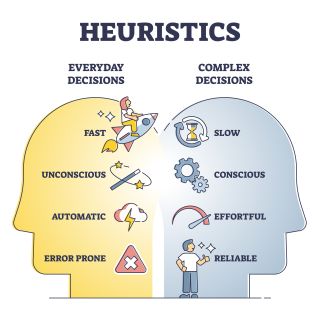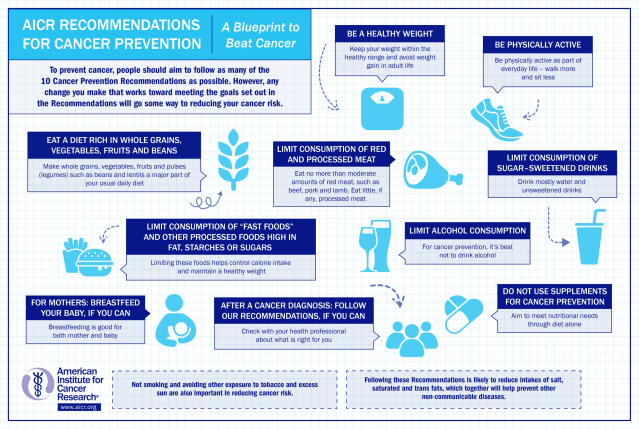HEURISTICS- Does Everything Cause Cancer? Sorting through the noise of clickbait reporting.

KEY POINTS-
- Scary headlines about cancer can be inaccurate and trigger cognitive biases.
- You can reduce cognitive bias by relying on evidence-based, practical information.
- There are research-backed healthy lifestyle recommendations that can reduce overall cancer risk.
It’s not uncommon to see scary headlines about cancer. Headlines like “Bad Day for Bacon: Processed Meats Cause Cancer, WHO Says”1; and “Will Your Grill Kill You?"2 were everywhere following the World Health Organization’s 2015 decision to place processed meats—like bacon and hot dogs—in the same category risk as tobacco smoking and asbestos.
While some of these types of attention-grabbing headlines are well-researched, they don’t always rely on accurate and responsible scientific reporting—instead, they often play up emotional drama to get a click. These types of headlines, unfortunately, also seem to line up with our brain’s natural biases toward how we filter new information. This can make it challenging to accurately assess the information provided.

I’ve previously written about heuristics—our brain’s tendency toward taking mental shortcuts to quickly problem solve or make a judgment. They’re handy in situations where we need to think on our feet, but heuristics are prone to error and not ideal for making complex decisions or judgments, like those about health behaviors and cancer risk.
Take, for example, the availability heuristic—the tendency to overestimate the probability of something based on how many examples you can easily bring to mind. If you’ve run across a few of “Will Your Grill Kill You?”-type articles lately, you might be more likely to overestimate the risks of eating grilled meat than statistics may actually suggest.
A related heuristic—the optimism bias—works similarly. With this bias, you might overestimate the likelihood of good things happening to you and underestimate the likelihood of bad things happening to you. Whether we are overestimating or underestimating risk, what is factual can get muddled, making it hard to know what to actually do with health risk information.
Between grabby headlines and our own mental gymnastics, it’s easy to get overwhelmed: “If everything is going to cause cancer, why bother?” But despite what the headline of the week may tell you, not everything causes cancer. There is an overwhelming body of evidence that just a handful of preventative steps can reduce your cancer risk.
A systematic review and meta-analysis published this year in the scientific journal Cancer3 suggests that around 40 percent of cancers are linked to modifiable lifestyle factors. The World Cancer Research Fund and the American Institute for Cancer Research developed a set of 10 lifestyle-based cancer prevention recommendations. These lifestyle recommendations include often repeated advice for general health, like eating a diet rich in whole grains, fruits, and vegetables; limiting consumption of sugar-sweetened drinks and alcohol; and getting regular physical activity. This meta-analysis showed that high adherence to these recommendations translated to a lower risk of three of the most common cancers—breast, colorectal, and lung cancers.

So no—not everything causes cancer. And there are some solid, evidence-based things you can do to help reduce cancer risk.
But remember: Reducing does not mean eliminating. Lifestyle does not account for 100 percent of cancer risk and it’s important to avoid blame following a diagnosis of cancer. You can do everything “right” and still get cancer—genetics, environmental exposures, and other factors all play a role as well. It's also not always as easy as it sounds to make healthy changes. However, doing as much as you can to work toward a healthier lifestyle can give your body the best possible chance of keeping well.
- Questions and Answers
- Opinion
- Motivational and Inspiring Story
- Technology
- Live and Let live
- Focus
- Geopolitics
- Military-Arms/Equipment
- Seguridad
- Economy
- Beasts of Nations
- Machine Tools-The “Mother Industry”
- Art
- Causes
- Crafts
- Dance
- Drinks
- Film/Movie
- Fitness
- Food
- Juegos
- Gardening
- Health
- Home
- Literature
- Music
- Networking
- Other
- Party
- Religion
- Shopping
- Sports
- Theater
- Health and Wellness
- News
- Culture

